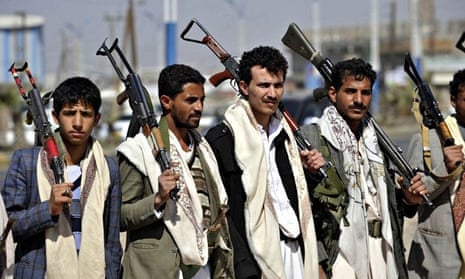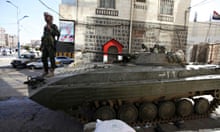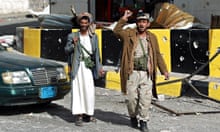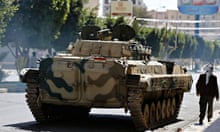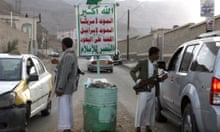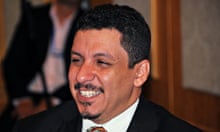Yemen usually only attracts attention in the west because of the dangers posed by the jihadis of al-Qaida in the Arabian Peninsula (Aqap), most recently because of the group’s claim to have been behind the Charlie Hebdo killings in Paris.
But for most Yemenis the Houthi movement is a far more important player – one that is capable of reshaping the complex political landscape of the poorest country in the Arab world and is now engulfing Sana’a in a wave of violence.
The Houthis, who hail from Yemen’s northern Sa’ada province, get their name from their late leader, Hussein Badruddin Houthi, and are now led by his brother Abdulmalik Houthi, a charismatic figure who is often compared to Hassan Nasrallah of the militant Lebanese organisation Hezbollah. The Houthis have been fighting the Yemeni central government since 2004, when the movement was founded to strengthen the rights of the Zaidi sect – who represent between 20-30% of Yemen’s population – and challenge what was seen as the pro-American stance of the country’s veteran president, Ali Abdullah Saleh, after the 9/11 attacks.
Understanding Houthi motives is complicated by the fact they have been supported by Iran, largely as a way of annoying Tehran’s regional rivals and Yemen’s larger neighbour, Saudi Arabia. But experts argue the conflict is fundamentally a political and tribal one rather than sectarian – in a country which has no tradition of Sunni-Shia animosity.
The Zaidis emerged from Shia Islam but of all the Shia they are the most similar to Sunnis in terms of religious practice.
In 2009, when Houthi fighters were poised to make similar advances against the government, Saudi Arabia launched an aerial campaign to halt their progress. Analysts believe the Houthis subsequently gained power because the Saudis lost influence with the Yemeni tribes and because the ruling elite in Sana’a had been fragmented by the fall of Saleh.
Last September, after non-stop protests against rocketing fuel prices, rag-tag Houthi fighters took Sana’a, with its key ministries and other government buildings, and consolidated and expanded southward and along the Red Sea coast. That effectively killed off the troubled Gulf and internationally backed political transition process – which removed Saleh from office after four decades and temporarily avoided a Yemeni civil war, but failed to introduce more fundamental changes.
“Supporters of the movement see the Houthis as correcting the wrongs of the country’s 2011 transition agreement, which preserved the power and corruption of old regime elites,” commented April Longley Alley of the International Crisis Group. “They praise the movement’s willingness to confront corruption, combat al-Qaida, and fill a security vacuum left by a feckless government.” Opponents see the Houthis as Iranian backed “and accuse them of aligning with Saleh in a marriage of convenience to gain power. They are convinced the Houthis harbour a discriminatory agenda.”
Al-Qaida has always been hostile to the Houthis and began to move against them as the group began taking territory in the country’s northern provinces. Last summer jihadi fighters decapitated 14 unarmed off-duty soldiers they claimed were Houthis. In October a suspected Aqap suicide bomber detonated his explosive vest at a Houthi rally in Sana’a’s Tahrir Square, killing at least 47 people.
The Houthis’ success has also encouraged the secessionists of the Hirak movement in southern Yemen, boosting fears that the country could disintegrate.
Until recently Yemen-watchers had argued that despite their show of strength last autumn, the Houthis were not likely to try to seize power in Sana’a and rule directly. The expectation was that they would use their improved military position to bargain with the government to obtain greater political and economic rights. Amid the sound of gunfire and talk of a coup in the capital, that assessment may now have to be revised.
